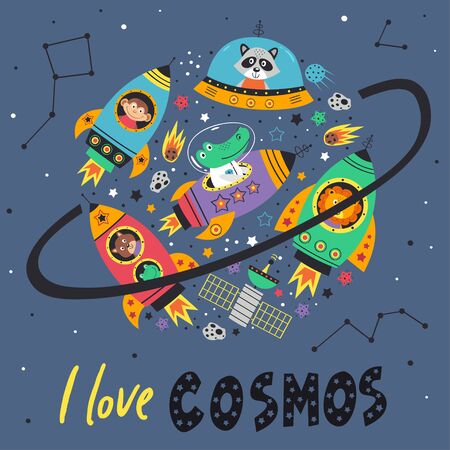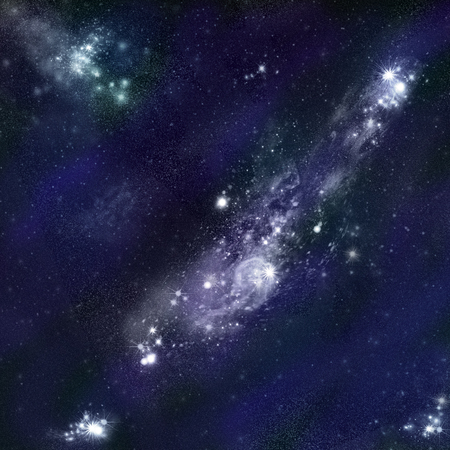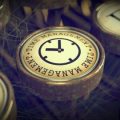1. Setting the Scene: Eclipses, Equinoxes, and a Proper Cuppa
Picture this: It’s mid-March or late September in Britain, the sky is a moody grey (as is tradition), and somewhere in the heavens an eclipse is brewing. Solar and lunar eclipses, those celestial show-offs, seem to fancy lurking around the equinoxes—just when the nation is busy debating whether it’s too soon to swap the winter coat for a slightly less depressing rain jacket. Is it a cosmic coincidence or just the universe’s way of upstaging British weather chat? Either way, while astrologers gaze skyward with dramatic gasps, most Brits are more concerned about whether their tea will stay hot during these astronomical shenanigans. Let’s be honest: nothing disrupts a proper cuppa quite like an unexpected shadow cast by the moon—or worse, the sun suddenly deciding to play peekaboo behind a cloud at precisely 3pm. As we embark on this astrological adventure, just remember: In Britain, eclipses may come and go, but the kettle is forever.
2. Historical Wobbles: Eclipses Through the British Lens
If you think Brits only get excited about queueing and the weather, think again! For centuries, solar and lunar eclipses have been causing collective eyebrow raises across this sceptered isle. Let’s embark on a whirlwind tour of how Blighty has historically interpreted these cosmic events—complete with a pinch of Stonehenge mystery and a dollop of modern-day befuddlement in Weatherfield.
Stonehenge: Ancient Eclipse Watchers or Just Early Morning Complainers?
The druids (or whoever actually built Stonehenge—we’re still not sure, but it’s probably not aliens unless they had a penchant for lumpy rocks) supposedly aligned those monoliths to track celestial happenings. While one theory is that they were using them as an ancient eclipse calendar, another posits that they simply needed something to complain about after inventing rain. Either way, our ancestors were clearly no strangers to sky-gazing, although their astrological interpretations ranged from “the end is nigh” to “time for another mead.”
The Medieval Era: Eclipses & Doomsday Diaries
Fast-forward to medieval Britain, and eclipses were considered ominous signals, sometimes predicting everything from royal mishaps to sheep behaving even more suspiciously than usual. Local monks dutifully recorded these events in chronicles—often next to notes about suspicious cheese shortages.
| Era | Common Eclipse Reactions |
|---|---|
| Stonehenge (Prehistoric) | Build stone circles, mutter about mysterious shadows |
| Medieval Times | Panic, pray, write dramatic diary entries |
| Victorian Era | Throw tea parties, publish stern newspaper warnings |
| Modern Weatherfield | Shrug, blame it on the telly signal going fuzzy |
The Modern Age: Corrie’s Cosmic Confusion
Jump ahead to today’s Weatherfield (that’s Coronation Street territory for you non-soap watchers), and eclipses are just as likely to be blamed for burnt toast as for planetary alignments. The average Brit might not consult an astrologer before the next eclipse, but they’ll definitely have an opinion—preferably shared over a cuppa with biscuits and perhaps a vague sense of foreboding if the lights flicker during EastEnders.
In short, whether aligning stones or aligning excuses for being late to work (“Sorry boss, the Moon was in my way!”), the British relationship with equinoctial eclipses has always wobbled between awe, anxiety, and absolute comic gold.

3. Astrology the British Way: Eclipses near the Equinoxes
Ah, Britain—the land of stiff upper lips, soggy tea bags, and a truly unique brand of astrology. When solar and lunar eclipses decide to photobomb the equinoxes, British astrologers don’t just raise an eyebrow; they brew a strong cuppa and brace for cosmic chaos. Forget your standard “mysterious energies” spiel—here, we dissect every planetary hiccup with the passion of a tabloid headline writer. Suspiciously timed eclipses near the equinoxes? Clearly, the universe is up to something dodgy, probably involving Mercury in retrograde tripping over its own shoelaces.
The Wild World of Ecliptic Shenanigans
Picture this: it’s nearly the spring or autumn equinox, you’re minding your own business (probably queuing), and suddenly there’s an eclipse looming over your horoscope like a seagull over your chips in Brighton. Astrological predictions spiral into delightful absurdity. Old Mrs. Abernathy from down the road swears her cat started speaking in riddles during last year’s equinox eclipse—though it might have just been the neighbours’ telly through the wall.
Mercury Retrograde: Britain’s Favourite Scapegoat
No British astrological perspective would be complete without blaming Mercury retrograde for everything from train delays to the milk going off a day early. Combine that with an eclipse on the equinox and you’ve got yourself a cosmic recipe for utter pandemonium: expect lost umbrellas, questionable weather forecasts, and horoscopes warning of “unexpected emotional drizzle.”
A Dash of Skepticism (and Biscuits)
Of course, in true British fashion, any wild astrological claim is best served with a biscuit and a generous helping of dry wit. Whether you’re a believer or just here for the drama, one thing’s certain: eclipses near the equinoxes give British astrologers enough material for several series of EastEnders-level plot twists—and possibly a new excuse for why you forgot your mum’s birthday.
4. Daily Life and Domestic Drama: Will My Biscuits Survive?
If you thought eclipses were just about the sun and moon playing peekaboo, think again, dear reader. In Britain, where cosmic events are secondary only to the fate of one’s biscuits during tea time, a solar or lunar eclipse near the equinox spells nothing short of domestic pandemonium. Let’s be honest—while ancient civilisations fretted over celestial omens, we’re more concerned about whether our rich teas will make it through unscathed or if we’ll miss a penalty shootout because the sky went all moody at 3pm.
The Biscuit Crisis: Dunking Under Duress
Astrological tradition (as interpreted in my nan’s living room) insists that an eclipse can disrupt daily rituals. A lunar shadow passing overhead? Expect your Hobnobs to crumble prematurely. Solar eclipse during elevenses? Your brew may mysteriously go tepid. Here’s how the stars align with snack anxiety:
| Biscuit Ritual | Eclipse Effect | Recommended Response |
|---|---|---|
| Dunking Digestives | Increased risk of soggy collapse | Double up on napkins |
| Custard Cream Consumption | Unexpected cream slide-off | Keep a spoon handy |
| Shortbread Nibbling | Crumbs everywhere (even before first bite) | Biscuit tin proximity is vital |
Football Fixtures: When Eclipses Steal the Spotlight
Nothing gets between a Brit and their local football—except, perhaps, a total eclipse. Imagine Old Trafford plunged into twilight mid-match; VAR decisions become even more questionable (“It was the Moon, ref!”). Astrologers recommend carrying a torch and accepting that any missed goals are now officially the universe’s fault.
The Tea Time Paradox
If there’s anything sacred in this land, it’s the 4pm cuppa. But under eclipsed skies, kettles may inexplicably take longer to boil and milk might curdle purely out of spite. Is it science? No. Is it astrology? Absolutely. The nation perseveres by keeping emergency Yorkshire Tea bags on standby.
Top Tips for Surviving Equinox Eclipses Like a True Brit:
- Check biscuit structural integrity before every dunk.
- If watching footie outdoors, pack sunglasses and thermos (for both weather and cosmic drama).
- Avoid making major life decisions until the next clear sky—or at least until Antiques Roadshow is back on.
So as the heavens conspire to turn daylight into dusk, remember: keep calm, carry on dunking, and never let an astral event get between you and your tea break.
5. Eclipses in Popular British Culture: Tabloids, Tellies, and Twitterstorms
Let’s be honest—no one does a good old-fashioned media overreaction quite like the Brits. When solar and lunar eclipses roll around near the equinoxes, you can bet your last Jaffa Cake that every tabloid from Land’s End to John o’ Groats will go absolutely crackers.
The Tabloid Tango: “Doom or Destiny?”
Picture it: the front pages of The Sun or Daily Mail, screaming “Blackout Britain: Moon Blocks Sun—Is This The End?” or “Lunar Madness: Full Moon Mayhem Strikes!” Never mind scientific explanations; what the public wants is apocalyptic drama and a healthy dose of national anxiety—with an obligatory pun about the Queen’s corgis howling at the sky.
Sofa Astrologers: Britain’s Real Experts
Move over, Brian Cox—the real stars are those mysterious “celebrity astrologers” who appear on morning telly in sparkly jumpers. They solemnly declare that this eclipse means Scorpios should avoid buying new kettles, while Capricorns must beware of parking tickets. All delivered with the authority of someone who once read half a book about horoscopes in 1986.
Twitterstorms and Online Overreactions
Not to be outdone, social media explodes into a digital eclipse frenzy. #TotalEclipse trends faster than you can say “tea time,” with armchair astrologers offering free (unsolicited) cosmic advice. Inevitably, someone declares Mercury must be in Ginsters again and that we’re all doomed—until Bake Off comes on and everyone forgets the moon ever existed.
In Summary: A National Pastime of Panic
Eclipses near the equinoxes aren’t just astronomical events—they’re a full-blown cultural phenomenon. With tabloids predicting chaos, telly hosts consulting mystical tea leaves, and Twitter erupting into meme-fuelled hysteria, eclipses prove one thing above all: if there’s a way to make a storm in a teacup, Britain will brew it—with extra biscuits for dunking.
6. Looking Forward: Whats Written in the Brexit Stars?
If there’s one thing Brits love more than talking about the weather, it’s peering into the cosmic abyss and wondering if anything up there actually cares about what’s happening down here (spoiler alert: probably not, but we’ll check anyway). With the next eclipse-adjacent equinox looming on the calendar like an unclaimed umbrella on a Northern Line carriage, astrologers across Blighty are dusting off their telescopes—and their horoscopes—to see what’s in store for our fair isles.
Gazing into the Astrological Tealeaves
Forget tarot cards or crystal balls; real British prophecy happens at the bottom of a slightly oversteeped mug of builder’s tea. As solar and lunar eclipses flirt dangerously close to our beloved equinoxes, the nation collectively wonders: is this cosmic timing just another sign that Britain is doomed? Or perhaps—like a delayed train—it’s just part of our national narrative. The stars may be aligning, but frankly, they’ve been doing that for billions of years and haven’t sent us a “Sorry you’re leaving” card yet.
Eclipses, Equinoxes, and Existential Ennui
The next big celestial event promises to stir as much debate as whether jam or cream goes first on a scone. Some astrologers say these alignments herald transformation and renewal; others reckon it means we’ll all forget our umbrellas again. Will Britain sink beneath a tidal wave of collective existential angst—or will we simply queue stoically for whatever comes next? The omens are ambiguous (much like the government’s position on most things).
Pondering Over a Pint
Ultimately, the best way to contemplate Britain’s fate under the shifting celestial spotlight is—naturally—down the pub. Whether you believe an eclipse near the equinox signals doom, rebirth, or just another excuse for an early night, nothing soothes astrological anxiety quite like a pint of warm ale and some spirited banter about Mercury retrograde. So here’s to looking up at the sky with one eye open and both feet firmly planted in muddled British soil. Chin up—the universe might be laughing with us, not at us (probably).


